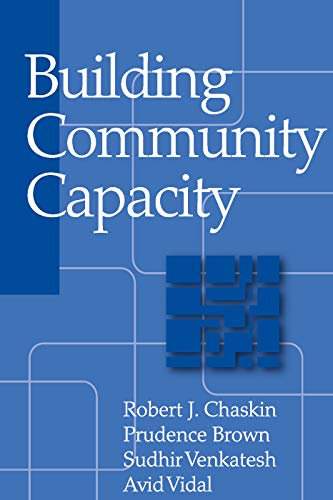Building Community Capacity (Modern Applications of Social Work) - Softcover
Buch 19 von 30: Modern Applications of Social Work
Inhaltsangabe
This book focuses on a gap in current social work practice theory: community change. Much work in this area of macro practice, particularly around "grassroots" community organizing, has a somewhat dated feel to it, is highly ideological in orientation, or suffers from superficiality, particularly in the area of theory and practical application. Set against the context of an often narrowly constructed "clinical" emphasis on practice education, coupled with social work's own current rendering of "scientific management," community practice often takes second or third billing in many professional curricula despite its deep roots in the overall field of social welfare.Drawing on extensive case study data from three significant community-building initiatives, program data from numerous other community capacity-building efforts, key informant interviews, and an excellent literature review, Chaskin and his colleagues draw implications for crafting community change strategies as well as for creating and sustaining the organizational infrastructure necessary to support them. The authors bring to bear the perspectives of a variety of professional disciplines including sociology, urban planning, psychology, and social work.Building Community Capacity takes a collaborative, interdisciplinary approach to a subject of wide and current concern: the role of neighborhood and community structures in the delivery of human services or, as the authors put it, "a place where programs and problems can be fitted together." Social work scholars and students of community practice seeking new conceptual frameworks and insights from research to inform novel community interventions will find much of value in Building Community Capacity.
Die Inhaltsangabe kann sich auf eine andere Ausgabe dieses Titels beziehen.
Über die Autorin bzw. den Autor
Avis Vidal
„Über diesen Titel“ kann sich auf eine andere Ausgabe dieses Titels beziehen.
Weitere beliebte Ausgaben desselben Titels
Suchergebnisse für Building Community Capacity (Modern Applications of...
Building Community Capacity (Modern Applications of Social Work Series)
Anbieter: World of Books (was SecondSale), Montgomery, IL, USA
Zustand: Very Good. Item in very good condition! Textbooks may not include supplemental items i.e. CDs, access codes etc. Bestandsnummer des Verkäufers 00088144720
Gebraucht kaufen
Versand innerhalb von USA
Anzahl: 1 verfügbar
Building Community Capacity (Modern Applications of Social Work Series)
Anbieter: World of Books (was SecondSale), Montgomery, IL, USA
Zustand: Good. Item in good condition and has highlighting/writing on text. Used texts may not contain supplemental items such as CDs, info-trac etc. Bestandsnummer des Verkäufers 00089744416
Gebraucht kaufen
Versand innerhalb von USA
Anzahl: 1 verfügbar
Building Community Capacity (Modern Applications of Social Work Series)
Anbieter: Open Books, Chicago, IL, USA
Paperback. Zustand: Very Good. Open Books is a nonprofit social venture that provides literacy experiences for thousands of readers each year through inspiring programs and creative capitalization of books. Bestandsnummer des Verkäufers mon0000598079
Gebraucht kaufen
Versand innerhalb von USA
Anzahl: 1 verfügbar
Building Community Capacity (Modern Applications of Social Work Series)
Anbieter: Wonder Book, Frederick, MD, USA
Zustand: Very Good. Very Good condition. A copy that may have a few cosmetic defects. May also contain light spine creasing or a few markings such as an owner's name, short gifter's inscription or light stamp. Bestandsnummer des Verkäufers S07D-02016
Gebraucht kaufen
Versand innerhalb von USA
Anzahl: 1 verfügbar
Building Community Capacity (Modern Applications of Social Work Series)
Anbieter: The Maryland Book Bank, Baltimore, MD, USA
paperback. Zustand: Good. Corners are slightly bent. Used - Good. Bestandsnummer des Verkäufers 2-L-1-1365
Gebraucht kaufen
Versand innerhalb von USA
Anzahl: 1 verfügbar
Building Community Capacity
Anbieter: ThriftBooks-Atlanta, AUSTELL, GA, USA
Paperback. Zustand: Fair. No Jacket. Readable copy. Pages may have considerable notes/highlighting. ~ ThriftBooks: Read More, Spend Less. Bestandsnummer des Verkäufers G0202306402I5N00
Gebraucht kaufen
Versand innerhalb von USA
Anzahl: 1 verfügbar
Building Community Capacity
Anbieter: Better World Books, Mishawaka, IN, USA
Zustand: Very Good. Pages intact with possible writing/highlighting. Binding strong with minor wear. Dust jackets/supplements may not be included. Stock photo provided. Product includes identifying sticker. Better World Books: Buy Books. Do Good. Bestandsnummer des Verkäufers 2239403-6
Gebraucht kaufen
Versand innerhalb von USA
Anzahl: 1 verfügbar
Building Community Capacity
Anbieter: GreatBookPrices, Columbia, MD, USA
Zustand: As New. Unread book in perfect condition. Bestandsnummer des Verkäufers 1387048
Gebraucht kaufen
Versand innerhalb von USA
Anzahl: Mehr als 20 verfügbar
Building Community Capacity
Anbieter: Majestic Books, Hounslow, Vereinigtes Königreich
Zustand: New. pp. 284 2:B&W 6 x 9 in or 229 x 152 mm Perfect Bound on Creme w/Gloss Lam. Bestandsnummer des Verkäufers 8250344
Neu kaufen
Versand von Vereinigtes Königreich nach USA
Anzahl: 3 verfügbar
Building Community Capacity
Anbieter: GreatBookPrices, Columbia, MD, USA
Zustand: New. Bestandsnummer des Verkäufers 1387048-n
Neu kaufen
Versand innerhalb von USA
Anzahl: Mehr als 20 verfügbar

